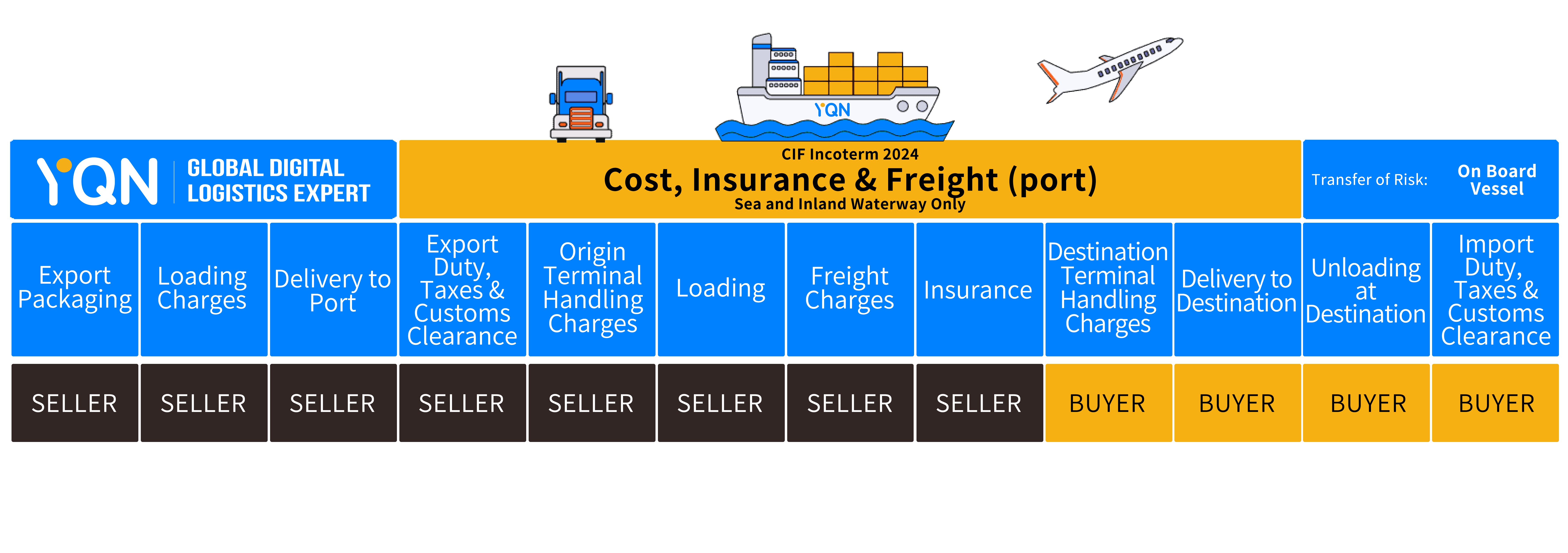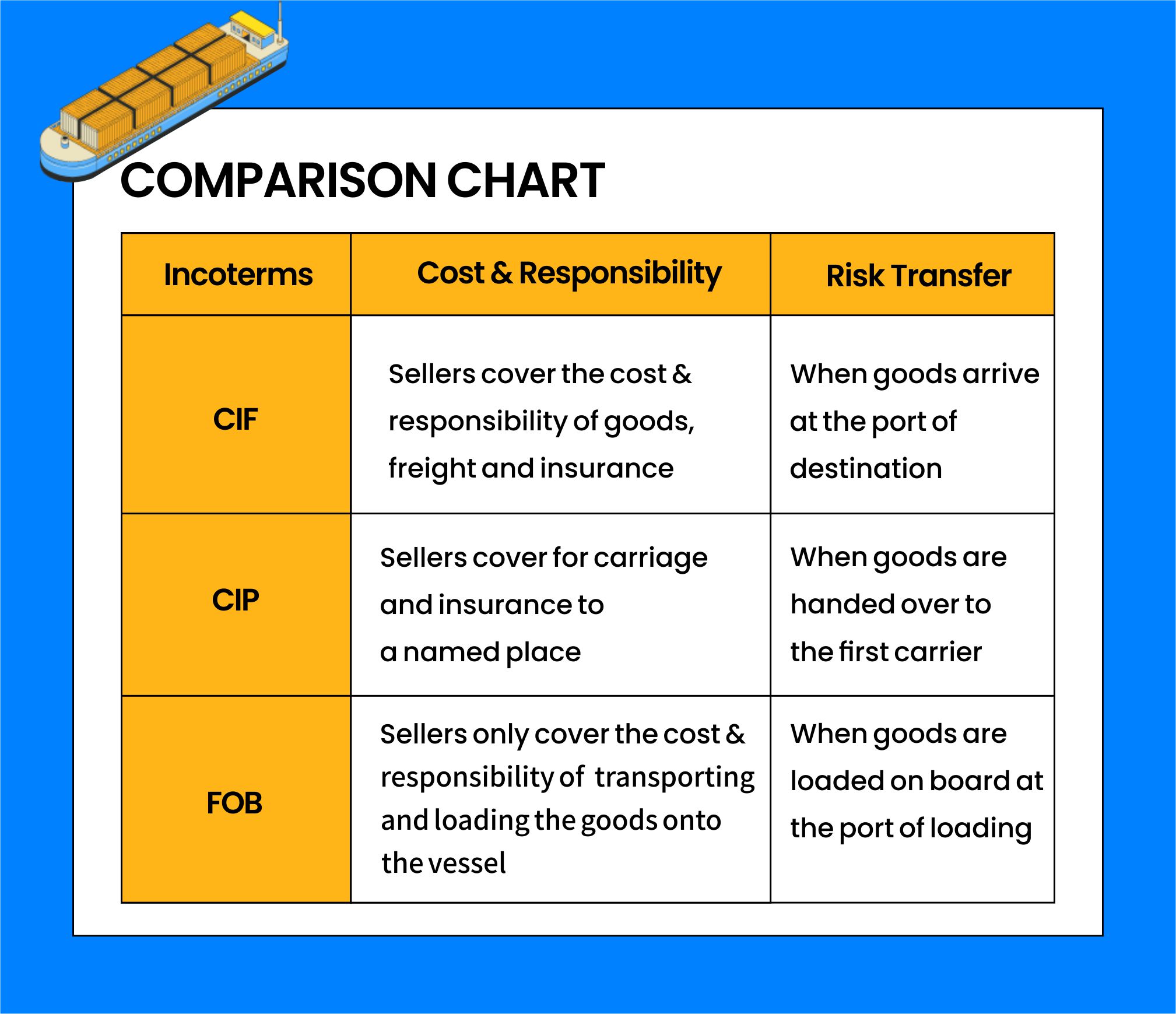Mastering CIF Incoterms: Key Strategies for Global Trade
6 September, 2024
What CIF Means in Shipping?
CIF (Cost, Insurance and Freight) is a trade term commonly used in international trade. The seller is responsible for transporting the goods to the buyer's designated port of destination and for paying the cost, insurance, and freight of the goods during transport.
With the development of international trade, the CIF clause has gradually become a core component of maritime trade, greatly simplifying the execution of cross-border purchase and sales contracts.
This article will explore the fundamentals of CIF in global trade, including its impact on buyer and seller responsibilities, and how it compares to other Incoterms such as CIP and FOB.
What is the Responsibility of the Buyer and the Seller?
The seller's responsibilities include:
- Choosing the mode and route of transport
- Paying all transport costs
- Arranging insurance for the goods
The insurance usually covers the entire journey from the port of origin to the port of destination and should be at least 110 percent of the value of the goods.
The buyer's responsibilities include:
- Import customs clearance at the port of destination
- Payment of import duties and taxes
As insurance is usually purchased by the seller, the buyer should check the insurance documents and terms carefully to ensure they are sufficient to cover possible losses.
CIF vs Other Incoterms
CIF vs CIP
The main differences are in the scope of liability for insurance and transport. For example, CIP requires the seller to take out a wider range of insurance coverage, which is required to cover at least 110 percent of the value of the goods and should include all possible risks in transit.
CIF usually requires the seller to take out insurance to cover only the minimum insurance conditions up to the point that the goods are transported to the destination. This means that the insurance usually only covers the main risks until the goods reach the port of destination.
In general, CIF is more suitable for buyers who do not want to go through the effort of purchasing insurance, paying for shipping costs, and assuming all the responsibility for international transport.
CIF vs FOB
There are also significant differences with FOB (Free On Board). Compared to FOB, CIF requires the seller to not only be responsible for loading the goods on board the ship but also to pay the freight and insurance costs to the port of destination. This gives CIF an advantage in protecting the buyer's interests, especially if the buyer has no direct control over the transport process. However, when using CIF, the buyer may also face challenges in managing the risk of insurance and loss of goods in transit.
The Role and Options of Insurance
Insurance plays a crucial role in CIF terms, protecting both buyer and seller against potential losses of the goods during transport. Common types of insurance include ‘all risks’ and ‘water damage’. All Risks Insurance provides more comprehensive protection, covering all losses except for a very few exclusions. In contrast, water damage insurance only covers specific loss scenarios, such as fire, explosion, and ship grounding.
Market Trends and Future Outlook
As globalized trade continues to grow and e-commerce becomes more popular, CIF clauses may need to be further adapted to the requirements of digital transactions. In the future, with the application of technologies such as blockchain, the operation and management of CIF may become more transparent and efficient.
Conclusion
When choosing and applying CIF, enterprises should examine their trade needs and risk tolerance in detail. Proper use of CIF terms can not only protect enterprises from unnecessary risks, but also optimise cost efficiency through precise insurance and transport arrangements.
If you want more information about CIF (Cost, Insurance and Freight), please contact our logistics experts at YQN Logistics. Manage your supply chain Manage your supply chain today!
-----------------------------------------------
YQN Operation Team
info@yqn.com







